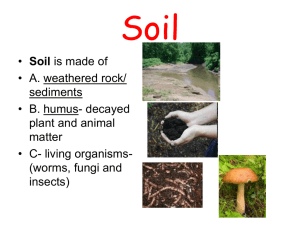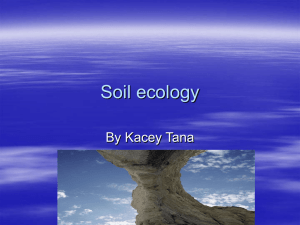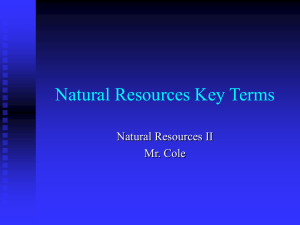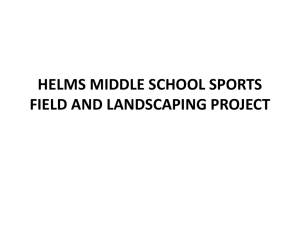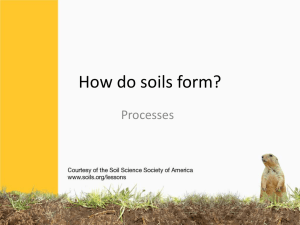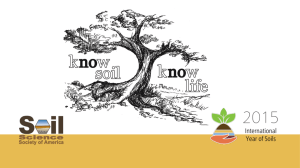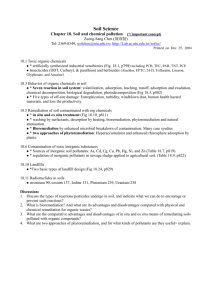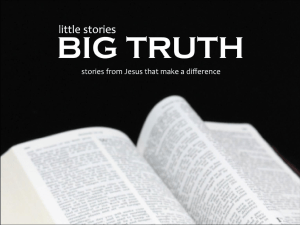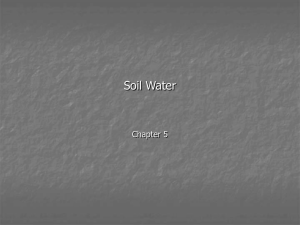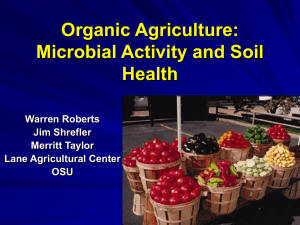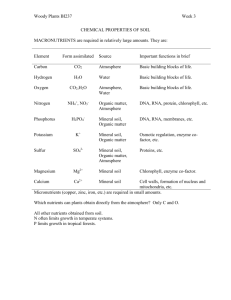What`s in Soil
advertisement
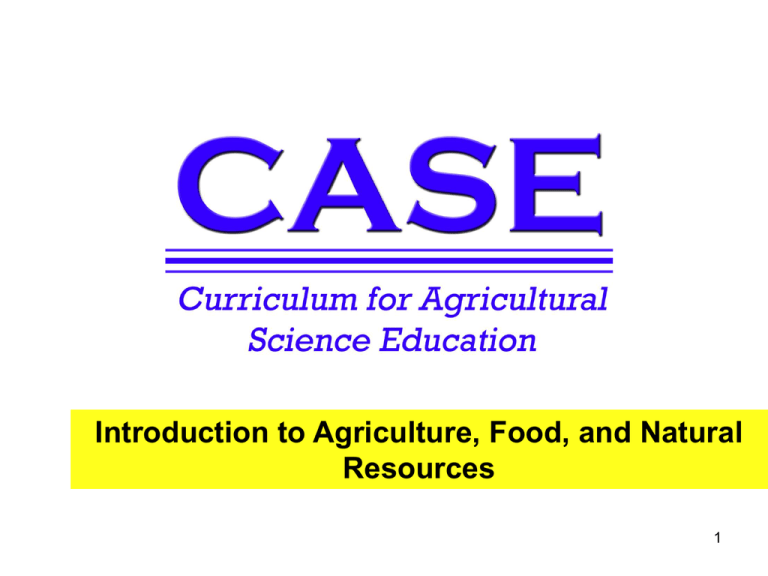
Introduction to Agriculture, Food, and Natural Resources 1 Introduction to Agriculture, Food, and Natural Resources What’s in Soil? Unit 3 – Lesson 3.3 Starting from the Ground Up 2 Soil is… • The mineral and organic surface of the earth capable of supporting upland plants. • Formed by the environment breaking down parent material over time. 3 Soil Components Soil Components Soils are made of four main components. 25% 45% Minerals Organic Matter Air Water 25% 5% 4 Mineral Matter • Includes rock and mineral fragments. • Fragments are classified by size. Gravel Sand Silt Clay 5 Organic Matter Organic Matter includes things, such as: • Plant roots • Decaying leaves and other vegetative parts • Animals: – Microorganisms (i.e., nematodes and fungi) – Insects (i.e., larva and worms) – Small mammals (i.e., gophers and moles) 6 Air • Air provides oxygen for plant roots. • Soil air is trapped in pores of the soil. • Porosity is a term to define how much open space is available for air and water to be held in the soil. 7 Water • Pore space in the soil can also be filled by water. • Some soil water is available for plant use. • Organic matter can hold more water because it creates pores and may even absorb water like a sponge. 8 Water • If a soil has too many or large pores, water drains away and is not held for plant use. • If a soil has no pores, the water does not filter through the soil and erosion can occur. 9 References Parker, R. (2010). Plant and soil science: Fundamentals and applications. Clifton Park, NY: Delmar. 10

